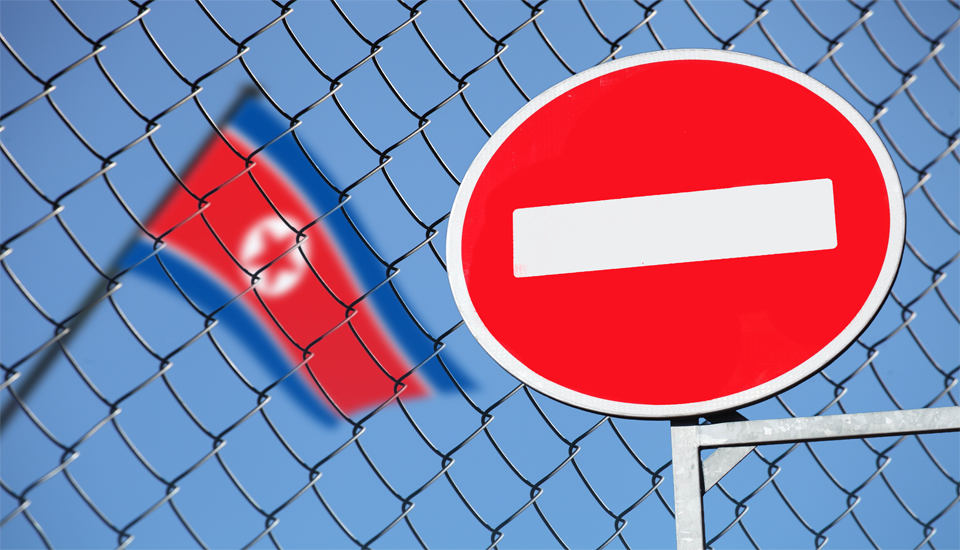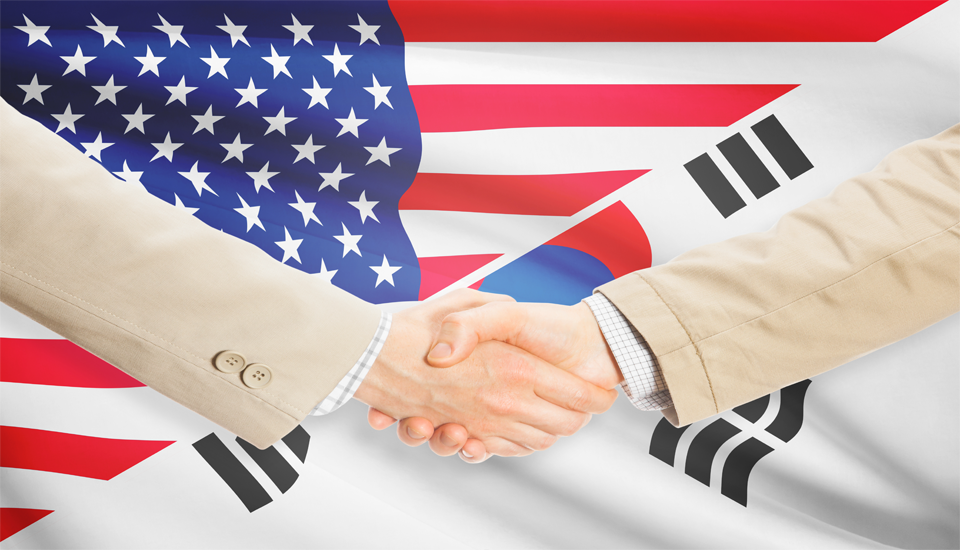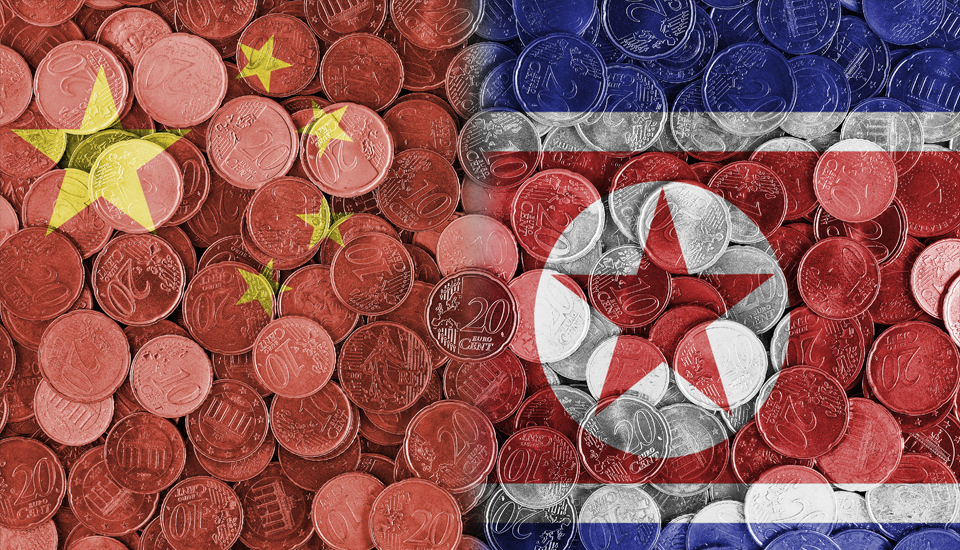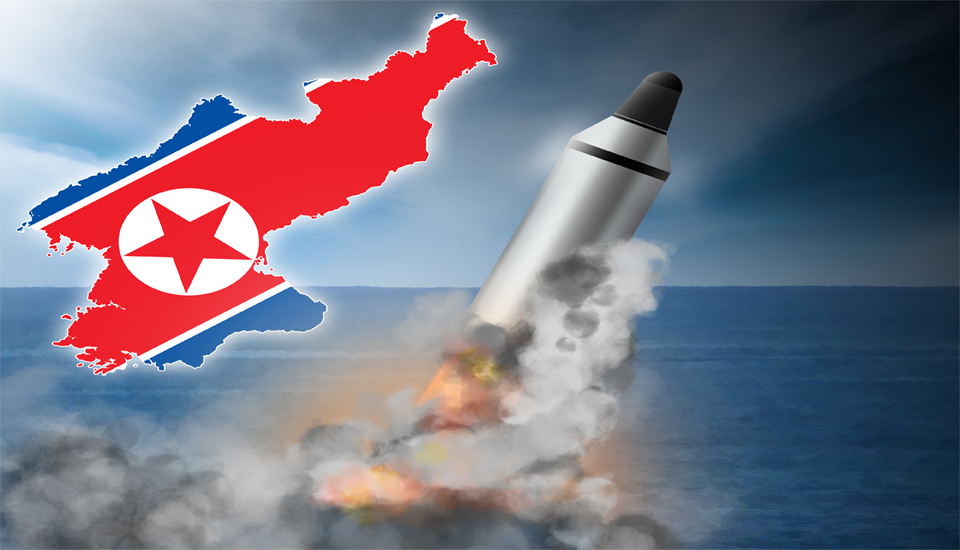
NK Update for September
Special Report | October 31, 2022
Minah Kang
Ph.D. Candidate at Johns Hopkins University
In this month's NK Update, Minah Kang, Ph.D. Candidate at John Hopkins University discusses the U.S.-ROK combined military exercises, suspicion of arms trade between Russia and North Korea, and the legalization of North Korea's nuclear force policy.
In September, North Korea shows off its enhanced military capabilities with missile test launch and declares itself a nuclear weapons state, thereby imposing threats to regional security. Additionally, Suspicion of Arms Trade between Russia and North Korea was raised. In response, South Korea has no choice but to focus on extended deterrence rather than economic sanctions or engagement. Related developments are being closely watched.
The US-ROK Joint Military Exercises and International Actions
Since the last US-ROK joint military exercises from August 22 to September 1, the so-called “Ulchi Freedom Shield (UFS),” North Korean government has criticized the joint military drill in the Korean Peninsula as threatening North Korea’s right to survival and development by “war exercises” and contended this “US hostile policy” against North Korea brought the provocative “new cold war” in East Asian regional security. Zhao Lijian, an acting spokesperson of the Ministry of Foreign Affairs of China, also emphasized the irreplaceable role of inter-Korean cooperation in relieving the Korean Peninsula’s political tension, noting North Korea’s concerns over “military exercises should be taken seriously.” On the other hand, the US Department of Defense reaffirmed its commitment to a practical approach without hostilities toward the denuclearization of the Korean Peninsula. On September 16, the US and South Korea held the high-level Extended Deterrence Strategy and Consultation Group (EDSCG), which included foreign affairs and defense ministers, to discuss “comprehensive deterrence measures” against the North Korean threat. Meanwhile, South Korea, the US, and Japan held high-level meetings to reaffirm the importance of their trilateral cooperation. From September 7 to 9, the Special Representative for the DPRK of the US, Japan, and Korea launched the meeting to discuss the risk potential of North Korea’s seventh nuclear test in the future. Furthermore, on September 23, three countries held the US-Japan-ROK Foreign Ministers’ meeting. In the face of frequent North Korean ballistic launches this year —as of this meeting day, North Korea launched 18 ballistic missiles this year—the US expressed the strong will of alliance commitments to South Korea and Japan, and three countries agreed on the adoption of Korean government’s “Audacious Initiative.”
Suspicion of Arms Trade between Russia and North Korea
Recently it was revealed that Russia purchased military equipment, including rockets and artillery shells, from North Korea for use in Ukraine. The US Department of State commented that this deal showed that the US export controls and sanctions triggered Russia’s supply shortage of technological and military bases. Meanwhile, the North Korean Department of Foreign Affairs released Russian President Vladimir Putin’s speech on the purpose of military operation in Ukraine—“to protect Donbas people and defend Russia”—and Russian Defense Minister’s press conference where he proclaimed that the US Defense Department had spent 250 million US dollars on the bio-research projects in Ukraine and the Ukrainian bio-institutes had been conducting confidential research in breach of the Biological Weapons Convention since 2005. Furthermore, the North Korean Ministry of Foreign Affairs reported that the US had sold and provided military equipment to other countries, including Ukraine, destroying global peace and security. Apparently, North Korea took a stance against Russia in the Ukraine crisis and aligned with Russia’s criticism of the US.
North Korea’s Legalization of the Policy of the Nuclear Forces
On September 8, a Law on nuclear forces policy was promulgated at the North Korean Supreme People’s Assembly. Based on this law, North Korea proclaimed itself as a “responsible nuclear weapons state and dignified independent power irreversible and to thoroughly safeguard the fundamental interests of the Korean revolution and the people’s safety.” Kim Jong Un stressed that this enactment would serve as a powerful legal guarantee for North Korea’s position as a nuclear weapon state: “The nuclear forces of the DPRK shall be a main force of the state defense which safeguards the sovereignty and territorial integrity of the country and the lives and safety of the people from outside military threat, aggression, and attack.” They also stipulated five conditions for using nuclear weapons: are as follows: 1) In case an attack by nuclear weapons or other weapons of mass destruction was launched or drew near is judged 2) In case a nuclear or non-nuclear attack by hostile forces on the state leadership and the command organization of the state’s nuclear forces was launched or drew near is judged 3) In case a fatal military attack against important strategic objects of the state was launched or drew near is judged 4) In case the need for operation for preventing the expansion and protraction of war and taking the initiative in the war in contingency is inevitably raised. 5) In other case an inevitable situation in which it is compelled to correspond with a catastrophic crisis to the existence of the state and safety of the people by only nuclear weapons is created.
In the face of North Korea’s enactment of nuclear forces, the Korean Ministry of Foreign Affairs emphasized the close cooperation with International Atomic Energy Agency (IAEA) against North Korea’s possible preemptive nuclear strikes. The Korean government also emphasized trilateral cooperation with the US and Japan. The Secretary of State of the United States and the Foreign Ministers of the Governments of the Republic of Korea and Japan released a joint statement. The US Secretary Blinken reaffirmed its steadfast commitment to the defense of South Korea and Japan, and the Secretary and Foreign Ministers reaffirmed the importance of urging North Korea to return to negotiation. They also clarified that “North Korea’s seventh nuclear test would be met with a strong and resolute response from international society.” The US Department of State also expressed that “North Korea’s new law and its implications for the Korean Peninsula will be a part of North Korea’s broader set of threats to the Indo-Pacific region, which could be discussed at EDSCG.” Meanwhile, the Chinese Ministry of Foreign Affairs noted that “China’s position on Korean Peninsula remains unchanged” and expressed that it “will play a positive role” in promoting the political settlement in the Korean Peninsula.
Such North Korea’s offensive nuclear posture implies its strategy to employ tactical nuclear weapons as political means of coercive diplomacy. Especially North Korean declaration for a nuclear weapon state stipulates that they can use nuclear weapons not only as a deterrent measure for a possible nuclear strike but also against conventional weapons threats. The legalization also indicates that North Korea can use nuclear weapons on non-nuclear countries, including South Korea and Japan. Thus, it is imperative that international society examines how a traditional nuclear deterrence approach which assumes functioning of nuclear taboo and countries’ reluctance to conventionalize the use of nuclear weapons should be adjusted in the case of North Korea. On the other hand, it is noteworthy that the war in Ukraine has strengthen Russia-North Korea relations. Henceforth, North Korea seems to take advantage of the US-Russia and the US-China conflict. Given those changes in North Korea’s nuclear strategy and prolonged international confrontation, it is critical that South Korea impose political pressure and economic sanction to increase the cost of North Korea’s nuclear possession. But also, based on the US-ROK alliance, both sides should affirm the credibility of US extended deterrence.■
■ Minah Kang is a Ph.D. candidate in the Department of Political Science at Johns Hopkins University. Her research interests include International Influences on Domestic Politics, State-Society Relations, Political Exclusion, Identity and Otherness, Global History of Cold War and East Asia, and Korean War. She has obtained her B.A. Political Science and International Relations & Women’s studies and M.A. in Political Science and International Relations at Ewha Womans University.
■ Typeset by Junghoo Park Research Associate
For inquiries: 02 2277 1683 (ext. 205) | jhpark@eai.or.kr
International Relations

Evaluation and Suggestion on the ROK-U.S. Extended Deterrence Strategy and Consultation Group Meeting
Jungsup Kim | October 24, 2022

The Influence of the COVID-19 Pandemic on the DPRK-China Economic Ties and their Impact on the Korean Peninsula
Eun-lee Joung | October 07, 2022

The Road to Denuclearization of the DPRK: The DPRK’s Strategy and the ROK-U.S. Response Plan
Won Gon Park | September 19, 2022
LIST